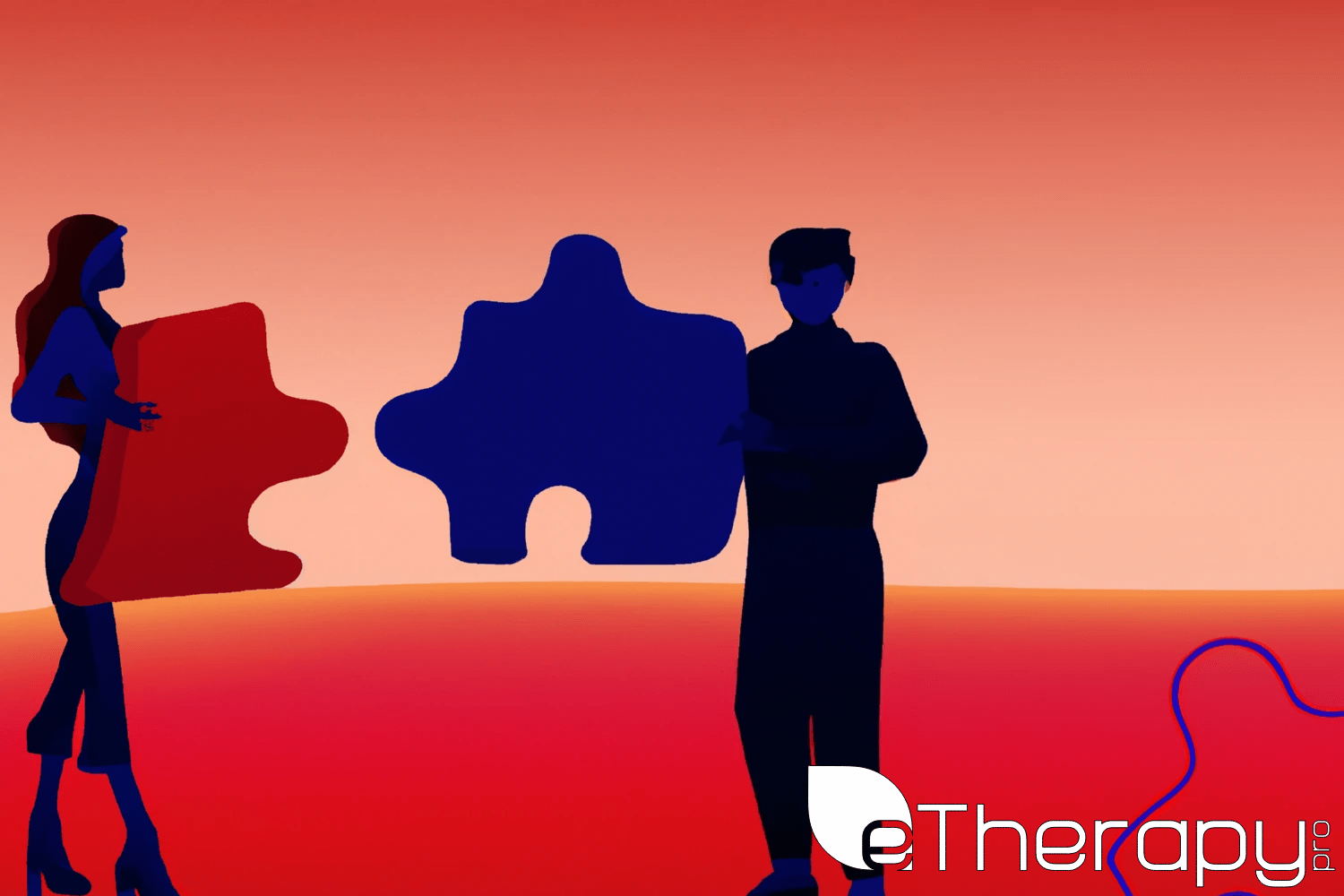 The dynamics of love have been evolving since the dawn of humankind, impacting how we form and maintain our relationships. As we navigate the modern world, understanding these changes becomes crucial to fostering deep and fulfilling bonds. Ever wonder why some connections feel so natural while others challenge us at every turn? Through the lens of history, psychology, and our very evolution, this article unravels the intriguing tapestry of modern love dynamics. Dive in, and discover the key threads that shape the relationships we cherish today.
The dynamics of love have been evolving since the dawn of humankind, impacting how we form and maintain our relationships. As we navigate the modern world, understanding these changes becomes crucial to fostering deep and fulfilling bonds. Ever wonder why some connections feel so natural while others challenge us at every turn? Through the lens of history, psychology, and our very evolution, this article unravels the intriguing tapestry of modern love dynamics. Dive in, and discover the key threads that shape the relationships we cherish today.
Evolutionary Foundations of Love
Tracing back through time, the evolutionary journey of love has served as a pivotal foundation for human connection and survival. Beyond fleeting emotions or grand gestures, our bonds are deep-seated legacies from ancient epochs that ensure the continued flourishing of our species.
The Role of Evolution
Evolution has meticulously molded our love dynamics to match the survival and social needs of humans. From the era when early humans leaned on strong relationships for protection against formidable adversaries, to today’s intricate social networks, our relational dynamics have experienced transformative shifts. The history of human relationships is deeply intertwined with the evolutionary threads of survival and adaptation. Centuries might have reshaped the contexts, but the heart’s quest for genuine connection remains a constant, influencing our modern pursuits for lasting and meaningful relationships.
The Framework of Attachment
Rooted in our evolutionary past, attachment styles form the structural framework of our relationships, providing the scaffolding upon which we build modern bonds. While evolution gave rise to our inherent need to connect, it’s the nature of these attachments that dictates how we experience and manage those connections in our lives.
Defining Attachments for Modern Love
Building on the bedrock of our evolutionary predispositions, John Bowlby and Mary Ainsworth‘s seminal work delved deeper into the complexities of our interpersonal ties. They highlighted the various attachment styles that mold our relational behaviors and perceptions. Their research illuminated the intricacies of how early experiences, particularly with primary caregivers, influence our relationship patterns throughout life. Moreover, their findings shed light on…
Secure, Anxious, and Avoidant
- Secure:
Description: Individuals with a secure attachment style generally have a positive view of themselves and others. They find it easy to get close to people without fearing abandonment or being too independent.
Example: In a relationship, they are understanding and can easily communicate their needs without feeling insecure.
Fears/Issues: While they are well-adjusted, they might sometimes struggle to understand the anxieties and fears of their non-secure partners.
Awareness Point: Recognize the balance and understand that not everyone comes from a place of security. - Anxious:
Description: These individuals are often preoccupied with their relationships. They fear abandonment and can be described as ‘clingy’ or ‘needy’.
Example: They might constantly check for text messages or seek reassurance that their partner loves them.
Fears/Issues: Their main fear is being left or abandoned. This fear often leads to them being overly sensitive to any signs of rejection.
Awareness Point: Understand that the constant need for validation might be overwhelming for a partner, and it’s essential to address one’s internal fears. - Avoidant:
Description: Individuals with this style are uncomfortable being too close to others. They value their independence and often appear aloof in relationships.
Example: They might hesitate to commit to a long-term relationship or find ways to maintain emotional distance.
Fears/Issues: Their principal concern is losing their autonomy or being smothered in a relationship.
Awareness Point: Recognize that keeping a partner at arm’s length can hinder the deep connection and intimacy everyone deserves.
By understanding and recognizing these attachment styles, one can achieve greater self-awareness. It’s vital to remember that if you see yourself reflected in any of these issues, it’s an opportunity to work on oneself and not necessarily a fault of the partner. Self-awareness is the first step towards fostering healthier relationship dynamics.
Modern Love Dynamics: Speaking the Language of Love
Building upon the foundational dynamics of attachment, in addition to these factors, there’s another layer to relationships often overlooked: the way we articulate our feelings. Beyond just forming attachments, the specific language we employ to express love serves as a nuanced layer, intricately impacting the efficacy and harmony within our relationships. In essence, while our evolutionary past and attachment styles shape our approach to relationships, the words and actions we choose play a pivotal role in the day-to-day health of our bonds.
Understanding the Five Love Languages
Understanding our love language and that of our partner is akin to unlocking a secret door to relational bliss. – Dr. Gary Chapman
The theory introduced by Dr. Gary Chapman delineates the distinct ways individuals express and perceive love. By offering insight into these variances, we are given the tools to bridge gaps, mend misunderstandings, and strengthen the ties of love.
- Words of Affirmation: This love language speaks to those who resonate with verbal expressions of love and appreciation. A simple “I love you” or “You mean a lot to me” can go a long way.
- Acts of Service: For some, actions speak louder than words. Making breakfast, doing chores, or any act of service becomes a testament of love.
- Receiving Gifts: It’s not about materialism, but the thought and effort behind a gift. Even small tokens can make a significant impact.
- Quality Time: Spending undistracted, quality time together is the key love expression for many. It’s all about giving undivided attention.
- Physical Touch: From a gentle touch on the arm to holding hands or hugging, physical intimacy is a powerful communicator of love for many.
By intertwining our understanding of evolutionary attachment and the unique languages of modern love, we pave the way for richer, deeper, and more harmonious relationships.
This section bridges the gap by highlighting the importance of the articulation of love, after discussing the foundation of attachment, thereby creating a well-rounded perspective on relationship dynamics.
Modern Love Dynamics: The Evolutionary Dance of Relationships
In the grand ballroom of life, relationships waltz to the tune of time, meandering between history’s lessons and tomorrow’s promises. As relationships weave through the dance of time, the continuous evolution and adaptation become pivotal, necessitating an ever-evolving awareness and adaptability in our approach to love.
Navigating Change
The key to thriving in any relationship lies in embracing its fluidity. Accepting that relationships, like life, undergo inevitable transformation can foster growth, deeper understanding, and an enduring connection. By tuning into these changes and adapting our steps, we can dance harmoniously through life’s relational melodies.
The meeting of two personalities is like the contact of two chemical substances: if there is any reaction, both are transformed. – Carl Jung
Conclusion Of Modern Love Dynamics
Evolutionary predispositions, varied attachments, and the subtle nuances of love dynamics weave the intricate tapestry of relationships. As we examine this complex masterpiece, we marvel at the beauty and depth of human connections. By understanding the interplay of these elements and adapting to the continual evolution of relationships, we can foster richer, more fulfilling connections. Isn’t that what we all seek — connections that resonate, heal, and endure?
 Lies in Relationships: In the realm of relationships, honesty, and transparency are the cornerstones upon which trust is built. But what happens when lies infiltrate this sacred space, causing
Lies in Relationships: In the realm of relationships, honesty, and transparency are the cornerstones upon which trust is built. But what happens when lies infiltrate this sacred space, causing 

